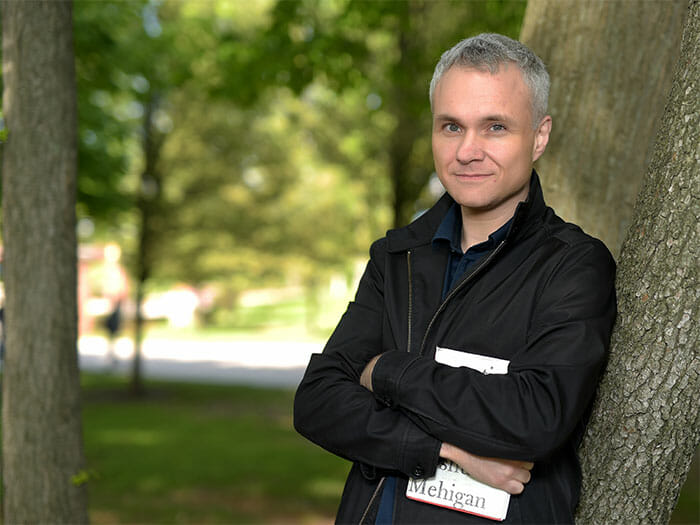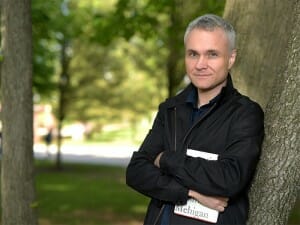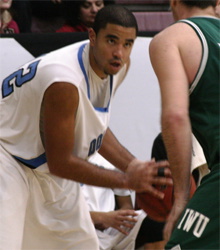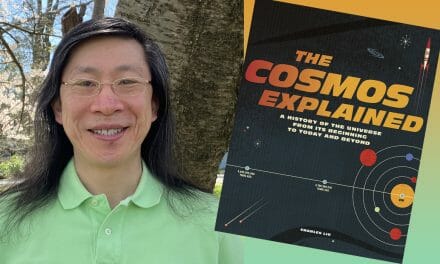CUNY Matters: In his widely acclaimed poetry collection, Accepting the Disaster, Joshua Mehigan takes on grave topics filled with tragedy, suffering, and death. But, the dark message of his poems comes veiled by the musicality of rhyme and meter.
As an example, Mehigan’s narrative poem “The Orange Bottle,” uses uncanny, tender rhyming verse to tell the story of a man who stops taking his medication and suffers a psychotic episode before being arrested and sent to a mental hospital.
The clear orange bottle was empty.
It had been empty a day.
It suddenly seemed so costly
and uncalled for anyway.
For Mehigan, part of his joy in writing poetry is the thrill of composition, playing with words and language, and also rhythm and meter.
However, he also uses poetry as a vehicle to discuss societal problems and issues in contemporary life.
“In writing poetry, there are ideas that I have about the world that I would like to get into people’s heads, subtly,” he said.
Mehigan, a doctoral student at the CUNY Graduate Center and teaching fellow at the College of Staten Island, was named a 2015 Guggenheim Fellow in Poetry.
Appointed on the basis of “prior achievement and exceptional promise,” Mehigan joins 174 Guggenheim winners that include ten poetry Fellows. His first book, The Optimist,was a finalist for the 2004 Los Angeles Times Book Prize in Poetry and winner of the Hollis Summers Poetry Prize. His most recent book, Accepting the Disaster, was cited in the Times Literary Supplement, The New York Times Book Review, and elsewhere as a best book of 2014. Critics have called him “one of our finest emerging poets.”
Mehigan’s poems have also appeared in The New York Times, The New Yorker, Smithsonian, and several anthologies.
When asked how he became interested in poetry, Mehigan said he started writing when he was about 10 and attributes his poetic beginnings to childish self-absorption.
“It wasn’t because I loved literature. It wasn’t because I loved writing. It was mainly just to try to impress people probably,” Mehigan joked. “But, eventually, I woke up and realized there is something to this.”
For inspiration, Mehigan goes to favorites who have also tackled difficult subjects such as W.H. Auden, Jorge Luis Borges, Edgar Bowers, Gwendolyn Brooks, and John Clare. Although his poetry focuses on dark topics, Mehigan explains that he doesn’t dwell in constant sadness.
“I’m obsessed with death. It’s true. I am,” he said.
“So if I’m walking down the street and see something in a particularly poignant way that demonstrates some interesting thing to me about death or my fear of death, then it will find its way to a poem. But it’s not like I walk around weeping,” he said with a laugh.
While he has enjoyed teaching at the College of Staten Island, Mehigan is grateful for the Guggenheim award, which he will use to focus on his next collection.
“I’ll take off a year from school and it will allow me to live, so that I can work. So that I can write poems. And that is really and truly, an amazing gift,” he said.

















